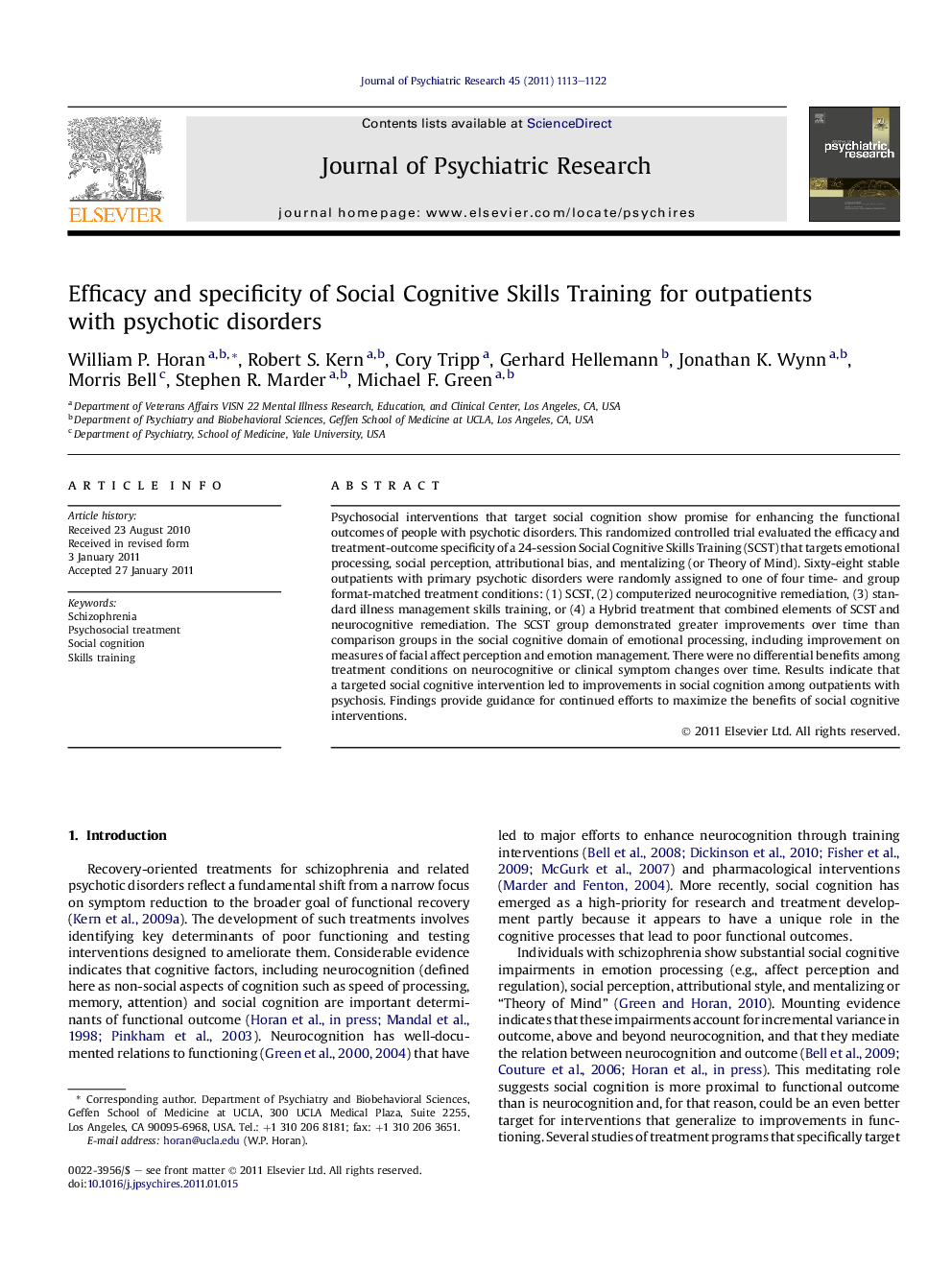| Article ID | Journal | Published Year | Pages | File Type |
|---|---|---|---|---|
| 10302614 | Journal of Psychiatric Research | 2011 | 10 Pages |
Abstract
Psychosocial interventions that target social cognition show promise for enhancing the functional outcomes of people with psychotic disorders. This randomized controlled trial evaluated the efficacy and treatment-outcome specificity of a 24-session Social Cognitive Skills Training (SCST) that targets emotional processing, social perception, attributional bias, and mentalizing (or Theory of Mind). Sixty-eight stable outpatients with primary psychotic disorders were randomly assigned to one of four time- and group format-matched treatment conditions: (1) SCST, (2) computerized neurocognitive remediation, (3) standard illness management skills training, or (4) a Hybrid treatment that combined elements of SCST and neurocognitive remediation. The SCST group demonstrated greater improvements over time than comparison groups in the social cognitive domain of emotional processing, including improvement on measures of facial affect perception and emotion management. There were no differential benefits among treatment conditions on neurocognitive or clinical symptom changes over time. Results indicate that a targeted social cognitive intervention led to improvements in social cognition among outpatients with psychosis. Findings provide guidance for continued efforts to maximize the benefits of social cognitive interventions.
Related Topics
Life Sciences
Neuroscience
Biological Psychiatry
Authors
William P. Horan, Robert S. Kern, Cory Tripp, Gerhard Hellemann, Jonathan K. Wynn, Morris Bell, Stephen R. Marder, Michael F. Green,
